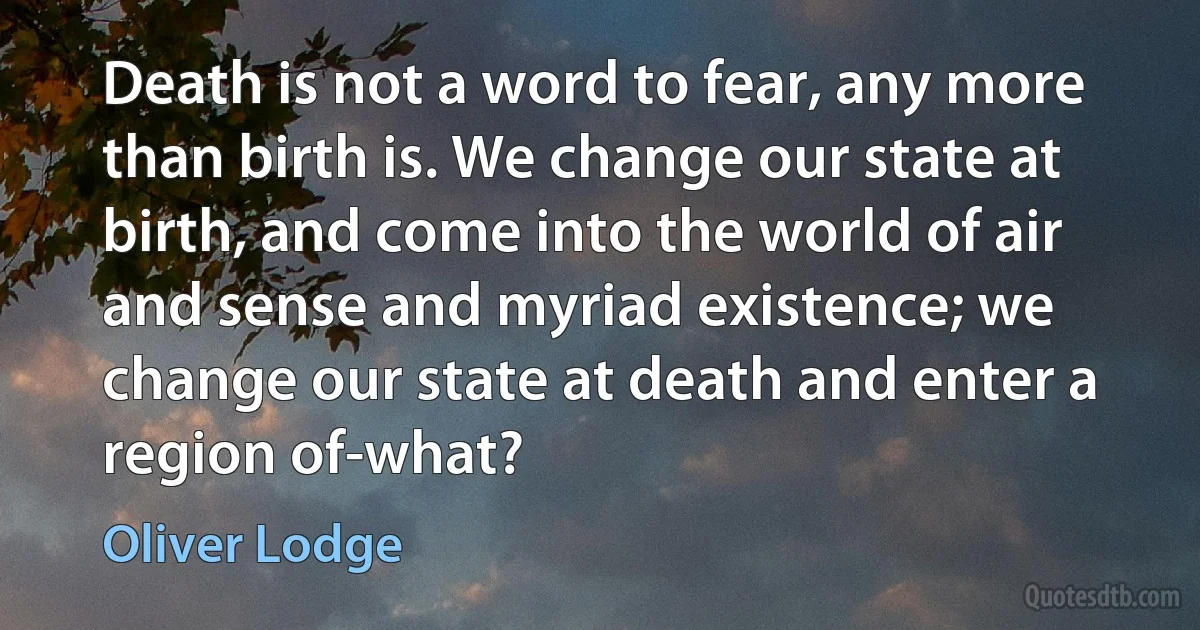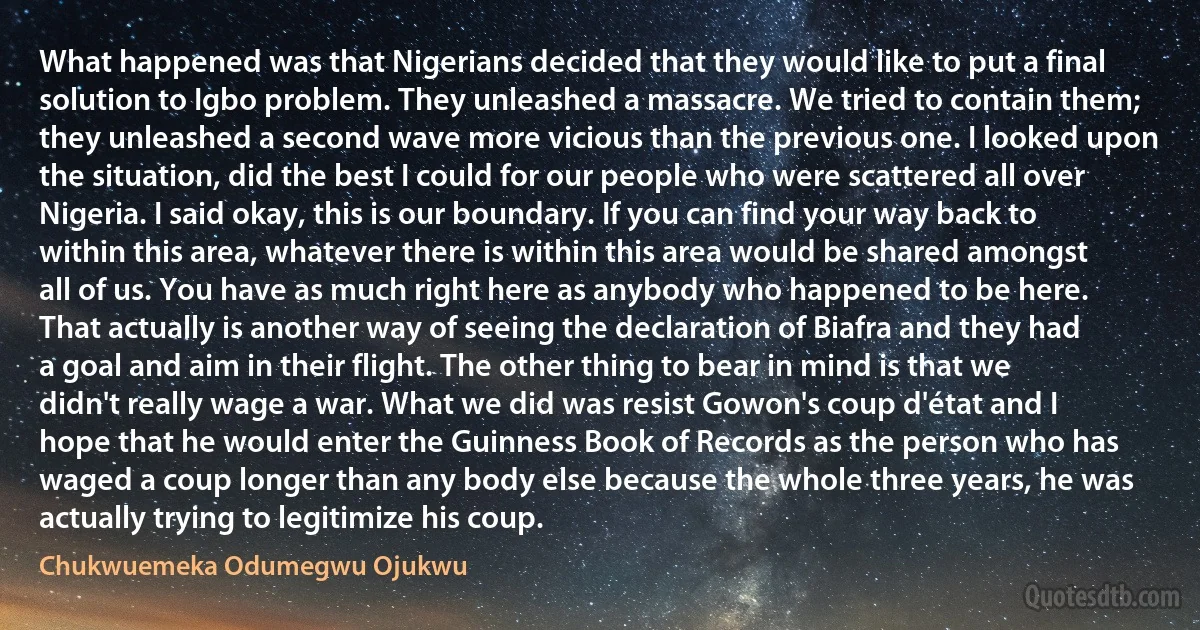Enter Quotes - page 25
Where do Goldman and Eaton and Trautmann and Zelliot and Gold figure in the canon of South Asian Studies? Judging from the country where they work in, the United States of America, not very high. Were they to enter a seminar room at the Association of Asian Studies meetings there would not be the buzz that would certainly accompany the entrance of diasporic scholars ten times as glamorous but not half as accomplished.

Ramachandra Guha
Today medical school is attended by mobs, not students; a mob receives its degree, a Doctor-Mob practises the medical profession. We learn to distrust it immediately; this mob may even be armed, may even be equipped with powerful weapons. Whoever wishes to become a doctor should reflect before entering the profession; enter only if you are determined to be different and to adopt different principles and teachings. Otherwise do not enter.

Guido Ceronetti
It is very possible for a teacher to be fluent in speech, earnest in manner, happy in his choice of illustration, and to be a very inefficient teacher, nevertheless. We are often apt to think it enough if we deliver a good lesson, and to forget that, after all, its value depends upon the degree in which it is really received and appropriated by the children. Now, in order to secure that what we teach shall really enter their minds, and be duly fixed and comprehended there, it is above all things necessary that we should be able to use effectively the important instrument of instruction to which our attention is now to be drawn.

Joshua Girling Fitch
Catholic priests know where the shoe pinches. But their day is done, and they know it. They are far too intelligent not to see that, and to enter upon a hopeless battle. But if they do, I shall certainly not make martyrs of them. We shall brand them as ordinary criminals. I shall tear the mask of honesty from their faces. And if that is not enough, I shall make them appear ridiculous and contemptible. I shall order films to be made about them. We shall show the history of the monks on the cinema. Let the whole mass of nonsense, selfishness, repression and deceit be revealed: how they drained the money out of the country, how they haggled with the Jews for the world, how they committed incest.

Hermann Rauschning
The approach that dominates organizational theory, teaching, and practice for most of the twentieth century looked at organizations from the top-down, starting with a view of the CEO as the "leader" who shapes the organization's strategy, structure, culture, and performance potential. The nature of work and the role of the workforce enter the analysis much later, after considerations of technology and organization design have been considered. However, if the key source of value in the twenty-first-century organization is to be derived from the workforce itself, an inversion of the dominant approach will be needed. The new perspective will start not at the top of the organization, but at but at the front lines, with people and the work itself - which is where value is created. Such an inversion will lead to a transformation in the management and organization of work workers, and knowledge. This transformation was signalled by McGregor, but we must go further.

Douglas McGregor
I'm not religious or anything like that. [But] a little more spiritual something or other... A little more 'feeling'. And there's my word again. You know?... And I find that.... [pauses], I find that uninspiring, and if I hung around too much I might find it very deadly. If I let it enter my studio. And it would be hard not to have it enter.

Joan Mitchell
As yet the efficiency of selling goods has not been worked out. Most salesmen believe it cannot be done. They claim that there are too many variables in the problem. Perhaps there are, but nobody knows until the experiment has been thoroughly tried. In every case the victories of Efficiency have been won in spite of the most stubborn opposition from the men who were being helped. And one fact is sure - that the first Advertisers and Sales Managers who try out Efficiency and succeed will find themselves in a gold mine. They will have found a better way to enter a market that handles, in an average year, thirty thousand million dollars worth of goods.

Herbert N. Casson
The term "information science” first appeared in the guise of "information scientist”. Particularly in industry during recent decades, some qualified scientists moved out of research, development of production into a new occupational role, that of providing an active information service to their colleagues. They regarded themselves as "information” scientists rather than "research” scientists. As this kind of work expanded and became formalized the need was seen to provide training for those who would enter the occupation. In time, the content of this training came to be called 'information science'.

Brian Campbell Vickery
As a race of scientists and thinkers,” she concluded, "we cannot claim with absolute certainty that Teot Yon's personality is now beyond Heaven's gates or inside Satan's stewpot or about to enter the embryo of a bull. Some of us subscribe to the Afterworld Hypothesis, some to less cheerful views. We all know that as an empirical event Teot Yon's existence is over, and it is time for his molecules to become air and ash and after that-where will his drifting pieces go and what new things will they help to form? Let the transformation begin!

James K. Morrow
Consider how one silently reads the following sentence: ‘The forest ranger did not permit us to enter the reserve without a permit'. Note that on its first occurrence, the word ‘permit' was (silently) pro-nounced with the stress on the second syllable (permit), hereas on its second occurrence the stress was on the first syllable (permit)... The syntactic and semantic analysis required to determine the appropriate meaning of the word ‘permit' must have taken place prior to the allocation of the stress pattern; and this in turn, must have taken place prior to the phonemic image entering awareness.

Max Velmans
We must enter into the spirit of the character [for making a portrait]: here the challenge is to place this figure in the human space, to work out what he represents in relation to other people, other human personalities; when you've worked this out, you're done. this truth has to stand out in the end result of the portrait.... when this task is complete, and the subject is placed in the realm of the dead that go on living, I hand over my work.

Marino Marini
It has been thought, correctly and nicely, that everyone who is in peril will be helped. Practically this is implemented in the way that everyone who can say the word "asylum" is allowed to enter Europe and Finland, that word creates a subjective right to cross the border. Even for no proper reason, one gets a full investigation that lasts years, and if the preconditions for an asylum are not met, one can avoid coercive measures and thus stay in the country which he entered wrongly.

Sauli Niinisto
An immediate consequence of these principles of explanation is that the souls of organic beings, i. e., the compacts of mind-masses, arisen during life, continue to exist after death. (Their isolated persistence is not sufficient). But in order to explain the orderly development of organic nature in which the earlier collected experiences obviously serve as basis for the later creations, it is necessary to assume that these mind-masses enter into a greater compact of mind-masses, the Earth-Soul, and that these serve a higher soul-life according to the same laws as the mind-masses engendered in our nerve-processes observe in their service of our own soul-life.

Bernhard Riemann



